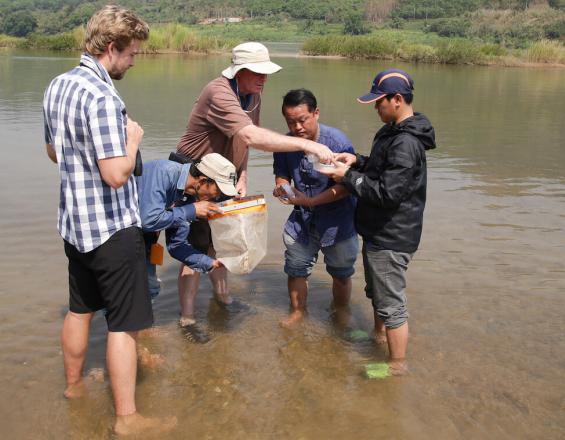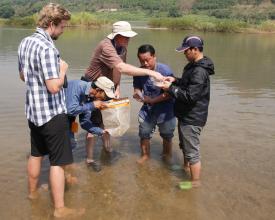
Environmental study of the Lancang-Mekong Development Plan

The study assessed the potential environmental and social impacts of the proposed Lancang-Mekong Development Plan (LMDP) and Pak Beng Hydropower Project and provided recommendations for improving the planning and management of these developments to effectively mitigate negative impacts. The study was undertaken in four phases (scoping, baseline assessment, impact assessment, and recommendations and management planning) and covered seven thematic areas:
- Hydrology and sediments;
- Aquatic biodiversity and wetlands;
- Fish;
- Amphibians and reptiles;
- Birds;
- Waterways; and
- Socio-economics and livelihoods.
By identifying the potential impacts of the proposed developments and setting out mitigation strategies, the study served to inform the deliberations of decision-makers. It may have played a role in bringing about an informal agreement between Thailand and China to halt the plan.
Context
Challenges addressed
Location
Impacts
The project provided a foundation for the improved sustainable development and management of the Lancang-Mekong River between the Golden Triangle and Luang Prabang. It helped improve the knowledge base on social and environmental values along this stretch. It identified possible short- and long-term impacts from the proposed developments and outlined a set of mitigation strategies to minimise the negative impacts in order to safeguard biodiversity and local communities’ livelihoods and subsistence.
As a next step following the study and its recommendations, the Mekong River Commission Secretariat will formally notify member countries about the study and linked resource materials so that countries can decide how best to move forward in integrating results in their respective navigation development plans, the environmental and social impact assessment on the LMDP and the associated environmental management plan.
The study was an important part of the scientific evidence base that led to an informal agreement between foreign affairs ministers of Thailand and China to halt the plan in February 2019. However, as there has been no official statement from China or Thailand on the cancellation of the LMDP, it is possible the plan may be pursued at a later date. The study results will continue to provide important information to decision-makers should the plan be resurrected.
